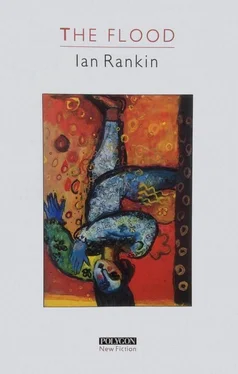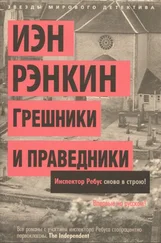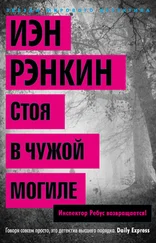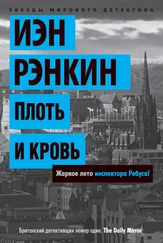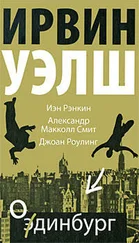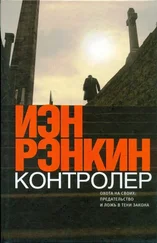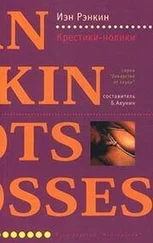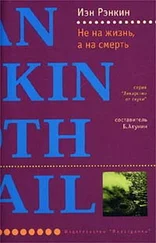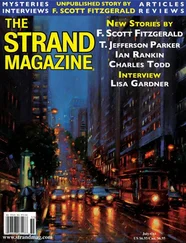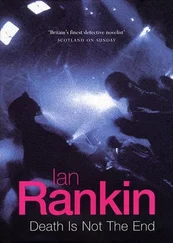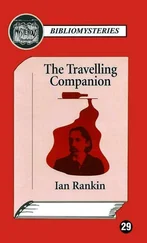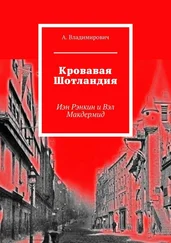‘Sorry,’ the man was saying, ‘but I’m trying to find St Cuthbert’s Parish Church. I think these instructions must be wrong.’ He rustled a piece of paper on which were drawn several black lines. His voice was Scottish, but never Fife. He was certainly educated. He sounded like a television presenter. ‘I’ve been there before, but I’m afraid my sense of direction must be hopeless.’ Sandy nodded and creased his brow.
‘Well,’ he said slowly, ‘you’ve got to go back the way you just came, but then turn left over the bridge.’ The man nodded. He had come from the right, from central Fife, from further afield, from Edinburgh perhaps.
‘Thank you very much,’ the man said. ‘I’m to be the new minister here, God and the people willing. Can I expect to see you and your parents at church some day?’
Sandy stared at him. The cheek of the man! He was grinning through his beard, and Sandy creased his own mouth wryly.
‘Some day,’ he said. ‘Some day.’ The minister laughed. It was a great big open natural sound. Sandy liked the new minister so far. The window was rolled up. The car drew away, did a quick three-point turn, and, with a toot of its horn, a toot Sandy acknowledged with a casual wave, made off. Sandy had decided to ignore the old man. Let him stare. He had as much right to be here as anyone.
Matt Duncan spat again. He had been in this town for sixty years. Was he not the man to ask directions off? But no, someone had stopped and asked the dirty black little upstart. Well let them, and let everyone forget about his son Matty. Let the town forget that tragedy; the wickedness of the witch. He would never forget. He forged horseshoes made of fire in his heart. There could be no forgetting. His son had died by fire. Now fire burned within the father. Let them all forget. But before he, Matt Duncan, died, there would be a reckoning. He screwed up his eyes until only a thin sliver of vision remained. In this sliver, the boy, seated again on his wall, became a blurred thing, a crouched goblin, the spawn of a witch, something insignificant which Matt Duncan would have squashed with a hardened and unfeeling palm as if eradicating a sin.
There were some little notebooks in a cupboard, and inside these discoloured relics, in the tiniest, neatest script, her grandmother had written down recipes for certain herbal curatives. This, to Mary’s knowledge, was as close as her grandmother had ever come to witchcraft.
She took the biscuit tin full of notebooks to her bedroom, closed the door properly, and sank on to the bed. She had let herself down. If she was frightened by Andy, gentle Andy, then she was ruined and would be better off dead. She did not seek a poison yet, but was looking for some recipe for the relaxing of women under stress. She knew, in her heart of hearts, that the problem was deeper than could be cured by any drug, yet she had to try, had to do something. Else she would go off her head. For Sandy’s sake, she could not do that yet. Sandy. Sandy. He was her life’s work, her everything. If only he was a little older. He seemed in a limbo: still tied to school, and yet not doing anything with his remaining time there. He was at an age that was no age. She wished she could help him, but then who was she to help anybody? She leafed through the fragile books, but found the writing difficult. Photographs showed that her grandmother had been a tiny creature with a pointed, puckered face and childish hands. White strands of hair flaked loose from her bun. She looked comical, ancient and wise. Sandy used to marvel that, to an extent, he was her kin. He would study her photographs for hours when a child, asking his mother and grandmother impossible questions as to identities of people and places. The album of loose photographs was now left untouched, and only seldom added to, such as in the period immediately after she had given Sandy a camera for his eleventh birthday. Photographs were memories of happy times. Perhaps that was why the album had become so little used. Ever since... Oh, she could burst that knowledge from her mouth! It was intolerable. Sandy, Sandy, Sandy, why have you never asked who your father was? Why? And why had she kept it bottled up all those years to have doubt and rumour still cast upon her?
She put a notebook to her nose and, sniffing its powerful smell, closed her eyes to let the weeping begin. She sat there, convulsed, and allowed her tears to drop noisily into the biscuit tin, splashing the ancient mementoes within.
The Reverend Iain J. M. Darroch, MA, BD, looked around his new church. It was a dull, dreary old building, smelling of polished pews and damp rafters. The only ornamentation came from the brass rails, the stained-glass depiction of Christ, and the empty vases on the window sills. He paced the floor between the aisles. He had been driven here for a preliminary look at the place a few days before, but had not really been looking at all. He looked now, though. A regular congregation of one hundred and thirty. One hundred communicants. It was dreary, but then he liked the prospect of a challenge, after the stuffiness of the degree itself and the nightmare time he had spent in the Oxgangs district of Edinburgh as an assistant. That had been a terrible year, a year which had cast doubt on his abilities. But here he was: his first full parish, if he were accepted. Things could only get better. Mr Ancram, the elder he had met on his first visit, came into the church through the small door beside the pulpit. He greeted the young minister cordially, apologising for not having been present on his arrival. Did he wish to go across to the manse? Did he have his things with him? Iain Darroch replied that the car was pretty full, and that a furniture van would be bringing the bulk of his possessions in a few hours’ time. Mr Ancram nodded. Mr Ancram and two other members of the Vacancy Committee had been to see the Reverend Darroch preaching at Oxgangs on the previous Sunday. All three thought that there would be no problem regarding his acceptance by their congregation. The minister looked around his new church one last time. He knew that his first sermon would have to be stimulating, or else he would soon lose his parishioners and his congregation. They feared young ministers around here, the minister of nearby Cardell Parish Church had written to inform him. He hoped to meet with that minister, the Reverend Walker, soon. But first he would have to get settled in and finish the inaugural sermon, which he had been preparing for the past three days. He would lose no kirkgoer without a fight. And he would succeed, with God’s grace.
Iain Darroch had been born in the East Neuk of Fife, the nose of the Scottie dog when Fife is examined on a map. Crail had been a quiet fishing port, more a tourist spot than an actual working harbour, though once it had been industrious and important. As a child, he had been uninterested in the quayside, in the lobster creels and their dark snapping catches. He had been a bookworm; not enough in the sun, his parents contended. They might well have been right. He was now pallid and skinny. The beard had been grown to hide his sallow face, but still it could be seen in his watery eyes. His mother had been proud of his intention to become a minister. His father had been surprised, but had said little. So, without much of the congratulation which the boy had assumed would be his, he had entered the local university of St Andrews, going on to do his Divinity degree at Edinburgh. This was his end. A town in Fife, more dead than alive. Not one of the East Neuk’s prosperous and civilised villages, but a redundant mining town, a town where God was needed, but was perhaps so seemingly absent as to have been rejected altogether by the majority of the inhabitants. Yet the town boasted two kirks — his own (his own]) and Reverend Walker’s. He hoped that there would be no poaching, then rebuked himself to the cloudless sky.
Читать дальше
